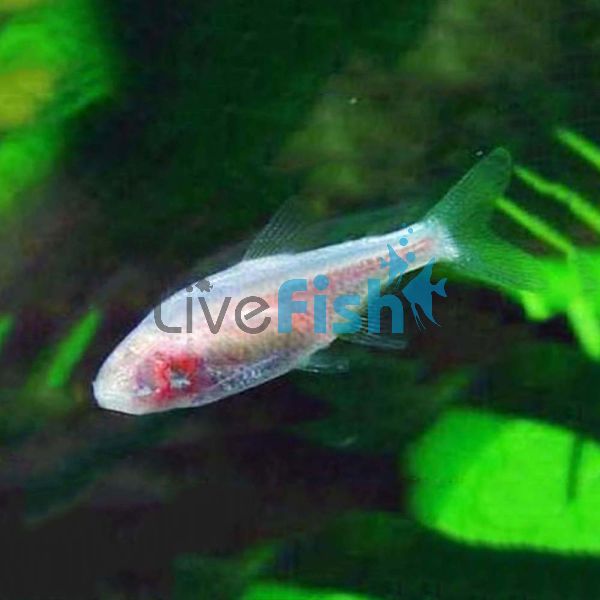Blind Cave Tetra 3.5cm
Blind Cave Tetra
The Blind Cave Tetra is one of the most fascinating oddball species available in the aquarium trade, prized for its unique appearance, adaptability, and eerie charm. Native to dark cave systems in northeastern Mexico, these fish will be an amazing species to highlight in a species-specific tank.
These tetras have evolved to completely lose their eyes, resulting in a smooth, sightless head and pale, almost iridescent peach-pink body. Despite their blindness, they navigate and school effortlessly using their enhanced lateral line and environmental awareness, making them a real conversation starter in any aquarium. They typically grow to around 9 cm and are quite peaceful when kept in groups of six or more. Their behaviour becomes more natural and less skittish in the presence of others.
Breeding Blind Cave Tetras in captivity is possible, though not commonly attempted. As egg scatterers, they will deposit eggs over fine-leaved plants or substrate. Males are generally slimmer and more streamlined, while females appear rounder when gravid. Removing the adults post-spawning is recommended to ensure higher fry survival, as they may prey on the eggs or young.
Tank Recommendations for your Blind Cave Tetra
The blind cave tetra can be kept only need a tank of around 75 litres, as they are a relatively small growing fish being a tetra. This makes them great for people who are looking to keep smaller aquariums or with limited space. A sand substrate is always advisable however, they can be kept with gravel, and a wide range of decor can be used. As they are naturally from caves, it is good to have a lot of rock work in the aquarium however, wood and plants can also be utilised. They also do not need to be kept in full darkness, meaning you can have aquarium lights. Though they are blind, they can find their way around items in the tank with their other senses and primarily rely on electrical receptors along their body.
Suitable Tank Buddies
The blind cave tetra is a fairly peaceful species, however, they are opportunistic feeders as they have a lack of sight. As they age they have been regarded as fin nippers but this is only an issue when they are kept with slow-moving species or fish that have long flowing fins. They may also eat small fry and shrimp. With adequate space these fish will get along with a wide range of fast-moving community fish.
Usually Compatible
Tetras, corydoras, barbs, and dwarf cichlids such as rams.
Sometime Compatible
Slow-moving fish like neon tetras, discus, angelfish, and fish with long fins, such as bettas and gourami.
Rarely Compatible
large aggressive species such as African cichlids, Oscars, and Jaguar cichlids.
Feeding your Blind Cave Tetras
Feeding Blind Cave Tetras is straightforward. They are not picky eaters and will quickly learn to locate food through smell and vibration. Offer high-quality flakes or pellets, frozen foods such as brine shrimp and bloodworms, and the occasional vegetable-based item like blanched spinach for variety. Feeding once or twice daily in small portions is ideal.
| Scientific Name | Astyanax jordani |
|---|---|
| Care Level | Easy |
| Common Names | Blind cave tetra, Mexican cave tetra |
| Diet | Omnivore |
| Fish Family | Characidae |
| Lifespan (years) | 10 |
| Max. Length (cm) | 10 |
| Min. Tank Volume (l) | 80 |
| Origin | Mexico |
| Sociability | Peaceful |
| Venomous | No |
| Water Conditions | 24-26° C, pH 6.5-7.5 |
| Plant Safe | Yes |




